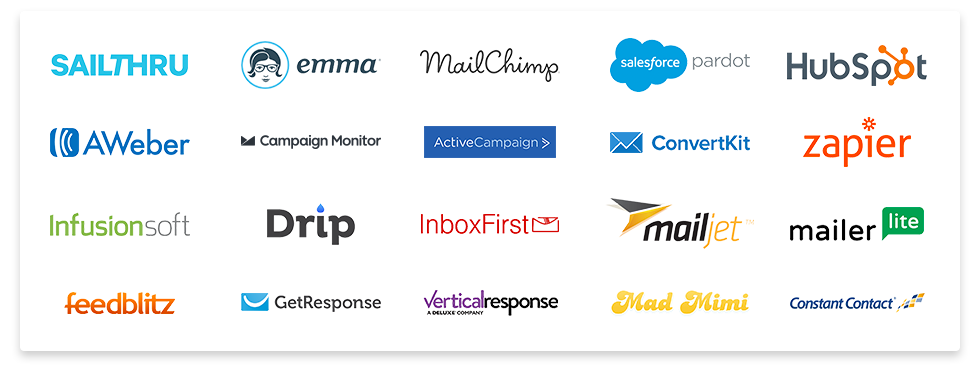To ensure that you receive high-quality, accurate and legally-compliant information to support your outreach or marketing campaigns, there are a variety of aspects to take into consideration. Take into consideration these aspects: Quality and accuracy of the data
Source of Data - Make sure that the information is gathered from reliable sources. This includes medical directories and licensing boards. The email addresses of family medicine professionals should be current, updated and tailored to your intended audience.
Verification Process: Ask about the verification process employed by your service provider. It is important to regularly keep up-to-date and tidy the email list, removing inactive email addresses or those which are not correct. Validated messages lower bounce rates and increase deliverability.
Segmentation Options : The list of options must allow segmentation according to criteria such a geographic location, the number of years in practice, the size of the practice or the specific areas (e.g., pediatrics, geriatrics, and preventive medicine). Segmentation allows for more individualized targeted outreach, which increases the rate of engagement.
2. Legal Regulations
Data Privacy Laws - Ensure that the list complies to the General Data Protection Regulation in Europe and the California Consumer Privacy Act in the U.S.A. and any other applicable laws regarding data privacy. Email addresses must be legally collected and in accordance with the consent of the user to avoid any regulatory fines.
CAN SPAM Act Compliance: If you are conducting email campaigns within the U.S.A. ensure that you adhere to the CAN SPAM Act. It's important to provide clear opt-out options and avoid using false subject lines or other information within your emails.
Opt-In Consent: Confirm that the email addresses were gathered through opt-in consent. This means that the family medicine doctor has agreed to receive emails from third party marketers. This ensures compliance with privacy laws, and helps reduce spam complaints.
3. Provider Reputation
Reputable Supplier: Select a provider that has an excellent record of providing data that is compliant and of top-quality. Review, testimonials and case studies written by clients to gauge the company's credibility and reliability.
Transparency - The provider must be transparent in the way that data is gathered and how it's updated. If the provider doesn't know what sources they can use to obtain their data, it's an alarming indicator.
Customer Support - Look for firms that provide strong customer support. It is possible that you require assistance with technical questions or list segmentation. Also, ensuring that the list conforms to the requirements.
4. Cost and Return on Investment (ROI).
Pricing Models: Service providers offer various pricing options, such as flat fee, pay-per-contact or subscription services. It is important to choose a pricing structure that is compatible with your budget.
Refund Policy and Replacement Policy. Trustworthy companies will offer refunds or replacements for inactive or invalid email addresses. Make sure you understand the terms of the policy prior to buying to ensure the security of your purchase.
Don't just focus on the cost. Although a cheaper list may look appealing, this could result in poor delivery or a high bounce rate. It is recommended to invest in a list of high quality which will enable you to target your audience and increase engagement.
5. Data Ownership and Usage
Single Use Single Use vs. Multiple Use: Clarify whether you are able to use the list in multiple instances or if it's for single-use only. Lists that include multiple campaigns are more effective, especially if your outreach is ongoing.
Exclusive vs. Shared lists: Determine whether the list is yours only or is sold to multiple buyers. Exclusive lists tend to be less likely to oversaturating audiences, and usually result in a higher level of engagement.
6. Data Integration and Format
Compatibility with CRM: Ensure you have your email list in a format compatible with either your CRM system (CRM) or your email marketing tool. (Example, CSV). This will ensure seamless integration and easy use.
Ease-of-Use: Make sure that the list you make is well organized and is easily segmented or filtering by criteria that relate to the campaign. It will streamline your messaging and your targeting campaigns.
7. Ethical aspects
Relevance of Outreach: Family doctors are busy professionals. So, make sure you customize your outreach according to their requirements. Avoid messages that are generic or unrelated to the practice since this can harm your reputation as a brand and cause lower engagement or complaints about spam.
Avoid Spam Practices - Send emails in a planned manner, and do not send over email. If you send recipients a flood of irrelevant emails or excessive amounts, it could cause unsubscribes, complaints about spam and a negative reputation.
The article's conclusion is:
Be sure to consider data quality, compliance with legal regulations, and reputation of the providers you choose to purchase an email list for Family Medicine to ensure that your outreach efforts are productive. Find validated, segmented information that is in compliance with privacy laws and aligned with your intended group of customers. By investing in an excellent list and delivering relevant messages, you will increase engagement and maximize your ROI. Check out the top family medicine email list for blog examples.

What Should I Consider Before Purchasing An Nurses Email List?
It is important to consider certain aspects when buying an email database of nurses in order to ensure the list you purchase is reliable in its compliance and is suitable for your outreach or marketing campaign. These are the most important points to keep in mind:1. Data Quality and Accuracy
Source of Data - Ensure that the list you're using is from a legitimate and reliable source such as nursing associations, registries for healthcare, or licensing authorities. Avoid lists generated through untested methods like data scraping as they may include outdated or inaccurate data.
Check the frequency of updates and verification: Check that the provider regularly updates and cleanses the data. In order to remove invalid email addresses, unactive emails as well as duplicates, a reputable email database should be maintained. A high-quality information guarantees better delivery.
Segmentation options. A high quality email list for nurses should contain the ability to separate your audience based on criteria such as specialties of nursing (e.g. Registered Nurses, Nurse Practitioners, Critical Care Nurses), the location (state town, state, region) or work environments (hospitals as well as clinics). Segmentation allows you to more precisely target your message, increasing the response rate and engagement.
2. Legal Regulations
Data Privacy Laws: Ensure that your list is in compliance with the regulations on data protection such as the General Data Protection Regulation (GDPR) in Europe as well as the California Consumer Privacy Act (CCPA) in the U.S., and other regional or local privacy laws. For your brand to be secured and to avoid penalties you must collect the email addresses legally.
CAN-SPAM Act Compliant: If you're conducting mail marketing within the U.S., ensure the list of recipients is in compliance with the CANSPAM Act. It includes explicit opt-out options, no-deceptive subject matter, and correct information about the sender. Any violations can be punished with large fines and may harm your reputation.
Opt-In Consent: The opt-in list should include contacts who have signed up to receive third-party communications. It is crucial to ensure that all nurses included on the list have explicitly agreed to receive communications.
3. Provider Reputation
Reputable Supplier: Pick a service that has proven to deliver accurate, high-quality email lists. Look at customer reviews, testimonials and case studies to determine the reliability and accuracy of the data.
Transparency. The provider should be transparent on how they collect, validate and keep data. If they fail to explain clearly their data sources and updates, it could suggest that the data is not reliable or has been dated.
Customer Support - Pick the company that offers solid customer service. Good support will help you resolve any issues, such as problems in data integration, or concerns about compliance.
4. Costs and Return on Investment (ROI).
Pricing Structure: Understand the pricing structure that you are using, whether it's per-contact fees, a list-size-based charge or an all-in-one flat-fee. Pricing should be consistent with marketing and budget goals.
Inquire about a provider's policy on invalid email addresses. Reputable suppliers often offer refunds or replacements for some percentage of invalid or undeliverable email addresses, in order to make sure you get exactly what you pay for.
Don't Focus Just on Price. Although it might be tempting for you to choose the most affordable list, put quality before price. A list that is more costly and contains accurate information, but also well-segmented will have a better return on investment.
5. Data Ownership and Usage
Clarify whether the list can be used multiple times or is just to be used for a specific purpose. Single-use lists are usually less expensive. If, however, you are planning to run ongoing email campaigns then purchasing a list is reusable could provide better value.
Shared lists vs. Exclusive: Shared Lists: Determine whether you are the sole purchaser on the list or whether other buyers are able to use it. Exclusive lists will be more effective, as they will prevent the target audience from becoming overwhelmed. This could result in greater engagement.
6. Data Integration and Format
CRM Compatibility: Make sure the list is available in a format that works with your customer relationship management (CRM) system or email marketing platform such as CSV or Excel. This helps ensure a smooth and efficient process of integration.
Simple Segmentation: The list must be arranged in a manner that allows you to easily filter or segment by different criteria. This will improve your campaign effectiveness by making it easier to reach specific nurses using targeted messages.
7. Ethical concerns
Relevance of outreach: Nurses work in healthcare and have busy schedules. Therefore, it is important to provide relevant and valuable information. Make sure your messages are relevant to their profession for example, health products, continuing education opportunities, or industry advancements. Avoid irrelevant or excessively promotional content. It can damage your reputation and the image of your business.
Avoid Spam practices. Be mindful not to overburden your readers with too much email. Sending excessive or unneeded emails could lead to an increase in unsubscribes, spam complaints and damage to your sender’s reputation.
You can also read our conclusion.
When you purchase a list of nurses, you must consider the following: the quality of data, legal compliance, and the reputation or the provider. The list must be updated on a regular basis and segmented. Additionally, it should comply with data privacy laws. You can improve engagement with an individualized, high-quality list by sending relevant, customized messages. Have a look at the top nurses email list for website tips.
